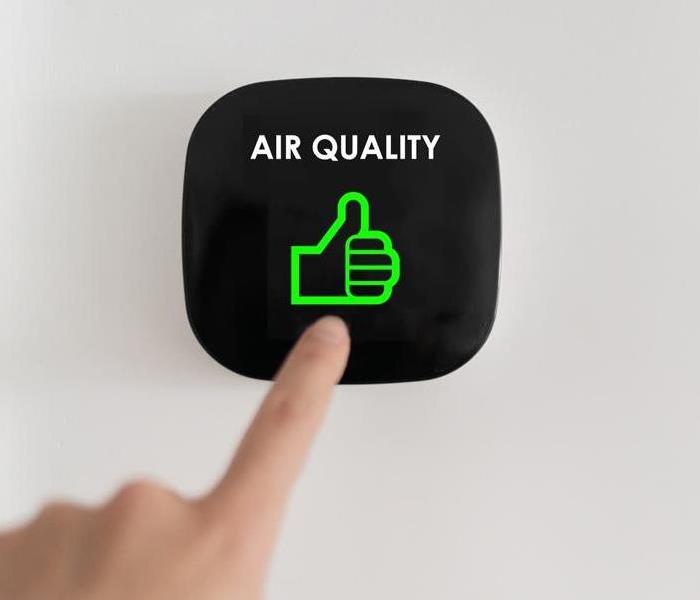The Importance of Air Quality Testing in Mold Remediation
4/30/2023 (Permalink)
Mold is a pesky problem that can cause health issues and damage property, so it's essential to take the necessary steps for its complete removal. When it's time to remediate mold, the process requires more than simply wiping down surfaces – air quality testing is essential. That's why it's important to have a highly qualified mold remediation team on your side.
Air quality testing is a critical step in mold remediation to ensure all traces of the problem are eliminated and future growth is prevented.
What Is Air Quality Testing?
Air quality testing is the process of checking air samples to measure the levels of mold spores and other contaminants in a given space. This can tell us if the mold is still present, how much is present, and where it's located. It also allows experts to determine which areas need to be cleaned and what cleaning solution should be used to safely remove the mold.
Why Is Air Quality Testing So Important?
Air quality testing is essential for an effective and safe mold remediation process. Without it, the mold could spread to other parts of the property where it wasn't previously present. Air quality testing can help identify potential sources of mold and determine if the air quality in the contaminated area is safe.
The first step in a successful mold remediation process is to identify the source of the problem. Mold often comes from high humidity levels, poor ventilation, and water damage. Air quality testing can identify the type of mold present in the air and any other potential sources of contamination. Air quality testing also helps to determine the concentration of mold spores and other air contaminants.
Once the source of the mold has been identified and the air quality tested, the next step is to identify what type of mold it is. Different types of mold require different levels of remediation, and air quality testing will help to determine what type of remediation is needed.
Air sampling can also monitor the air quality during the remediation process. This helps ensure that no new mold spores are introduced or allowed to remain in the air after the remediation process is complete. This can also help determine if any remaining mold spores need to be removed before the area is deemed safe again.
Finally, air quality testing can help identify any health-related risks. Some types of mold can cause allergic reactions and other health issues in humans and animals. Testing the air quality ensures that your home or business is safe for all occupants.
The importance of air quality testing during a mold remediation process can't be overstated. It can also help to identify any potential health risks related to the presence of mold. If you suspect mold presence in your home or business, it's essential to contact a professional remediation team right away. They'll be able to assess the situation, identify the source of the problem, and take the necessary steps for its removal.
At SERVPRO of South and Northwest Grand Rapids, our experienced mold remediation team is here to help. We have the knowledge and expertise necessary to do the job and remove mold. Our team can also provide air quality testing to ensure all traces of the problem are eliminated and prevent its return. Contact SERVPRO of South and Northwest Grand Rapids at (616) 662-9700 with any questions, and our team will be happy to assist. We're here to help you restore your home or business to a safe and healthy environment.
Do you have any questions or concerns about air quality testing and mold remediation? If so, reach out to SERVPRO because we're here to help!




 24/7 Emergency Service
24/7 Emergency Service
